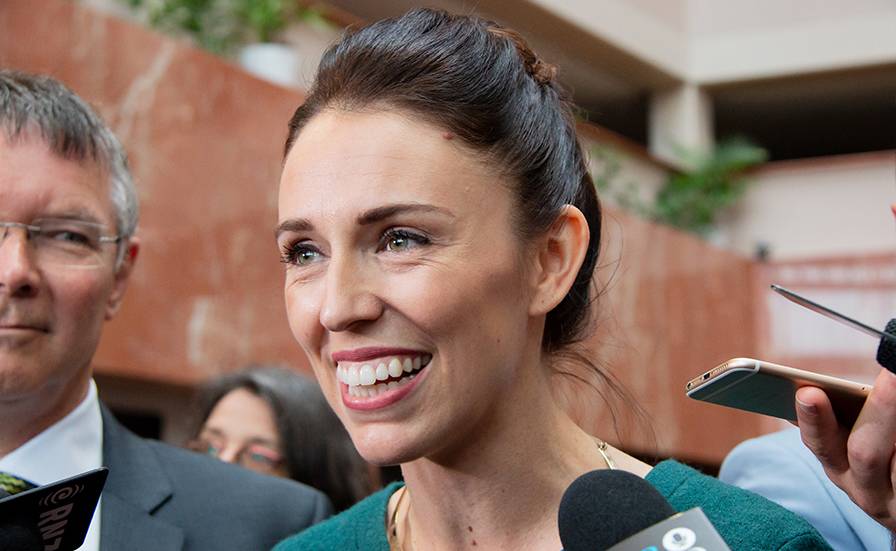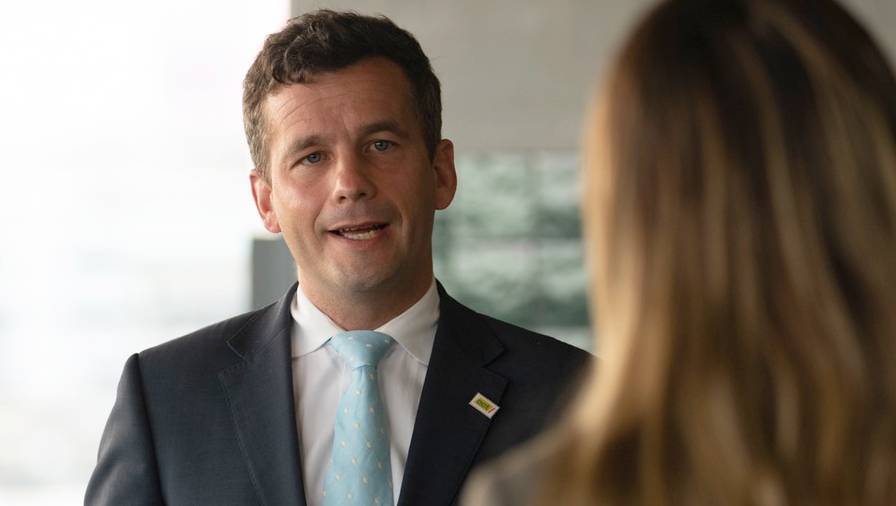The Government has continued to woo local government this week as it tries to win greater support for its Three Waters Reform programme.
Both Prime Minister Jacinda Ardern and Local Government Minister Nanaia Mahuta spoke to the Local Government New Zealand annual conference, with Ardern telling delegates she knew there was concern about the transfer of water assets to four new water services entities, but something had to be done to deal with the country’s ailing water infrastructure.
As well, the Government is transferring money to local councils to help sweeten the pill. This week, Associate Local Government Minister Kieran McAnulty announced $44 million to help councils deal with the transition of staff and services to the new entities.
At the same time, Housing Minister Megan Woods announced the first recipients of $179m of support to help them fast-track residential developments by paying for much needed infrastructure such as sewage and stormwater systems. Not all councils got money from this first announcement, but more money is coming.
The Government will have to do more though, to ameliorate the concerns of at least some councils that view the reform as a form of theft because they lose direct control of their water assets even if they will hold shares in the new water entities responsible for running Three Waters infrastructure in their region.
Meanwhile, papers obtained by NBR under the Official Information Act reveal the Treasury has advised the Government that how the water services entities are regulated will have a big bearing on the credit rating they get from international ratings agencies like Standard & Poor’s. That presumably will determine just how much they can borrow to invest in not just maintaining current infrastructure but in upgrading and developing new infrastructure.
The Government’s argument for the reform is that taking the infrastructure off local governments’ books will enable increased investment to provide the sort of infrastructure needed now and for the future.

Three Waters reform remains a contentious issue.
Scrap the reforms
The National Party, meanwhile, has reiterated it will scrap the reforms if it leads the next government.
It is important to note, though, that no-one disagrees that Three Waters infrastructure – wastewater, storm water and drinking water – need fixing. They just disagree how.
Of course, some local councils argue against the Government’s reform because they see it as cutting across their ratepayers’ democratic rights and that it will reduce transparency.
While local government delegates were lauding the value of democracy ahead of local government elections later this year, that spirit of openness and transparency did not apparently extend to the Taxpayer’s Union, which has often been a critic of local government spending.
The organisation and its office holders were barred from attending the conference, apparently because Local Government New Zealand did not appreciate some of the criticisms it had made of local authorities in the past. Hypersensitive or hypocritical?
Not a good look
Talking of hypocrisy, the Prime Minister attracted some criticism this week when she lined up for a photograph with all the youth MPs attending the Youth Parliament. What riled people was that they were all unmasked.
Those in the photograph defended it, saying they had only removed their masks for a few moments while the photograph was taken. Yet it was not a good look.

Prime Minister Jacinda Ardern.
It came the week after Ardern’s Covid-19 Response Minister Dr Ayesha Verrall had announced new measures to combat a second wave of Omicron, as the average number of daily cases edges ever closer to 10,000. If there was one key message Verrall and outgoing Director-General of Health Dr Ashley Bloomfield had, it was to wear a mask in all indoor settings outside your home, particularly in crowds.
If the Government is really serious about containing this outbreak, to take pressure off the health system, the Prime Minister surely must model the best behaviour. If she will not wear a mask for a photo opportunity, why should the thousands of people in Auckland malls, many of whom refuse to wear masks, do so?
One person who did defend Ardern was National’s deputy leader and finance spokesperson Nicola Willis, who pointed out she too often slipped her mask off for a photo opportunity.
It might be all our political leaders need to model best Covid-19 behaviour, with the seven-day rolling average of cases reaching 9161 at the end of last week, although that was lower than the week before, and the seven-day rolling average of deaths 25.
Hospitals are struggling to cope with the rise in Covid cases and the predicted increase in seasonal flu. Wearing masks is just one simple way people can help reduce the load on the health system and it seems incongruous that politicians will breach that conduct purely for short-term political reasons, such as looking good for a photo.
Good week
Meanwhile, NBR presenter Grant Walker thought Willis had a good week as she spoke to the news media following the announcement inflation had reached 7.3% in the year to the end of June.
According to Walker, Willis got her points across well and looked and sounded like she knew her stuff. But he asks whether she faces the same scrutiny and pressure as National leader Christopher Luxon.

National deputy leader and finance spokesperson Nicola Willis.
The short answer is no. The leader of a party, particularly of the main Opposition party, always faces more pressure than others.
As well, it has been relatively easy for Willis to prosecute the case around the cost-of-living crisis. Inflation is at a 30-year-plus high, so the Government will always be on the back foot so the Opposition finance spokesperson has plenty to criticise.
But scrutiny will come. For the moment, National largely gets away with its criticism and there is little questioning of what it would do and how it would afford it. Next year, though, there will be much more focus on National’s alternative budget, whatever that may be.
Think back to 2020, when National got its numbers wrong. It will not want to make that mistake again and Finance Minister Grant Robertson is already questioning how National can afford to do all it says it would do.
Willis is having a relatively easy run for the moment, but she will want to ensure all National’s policies and numbers add up as it goes into the election campaign. If not, she will come under the sort of pressure Luxon faces.
Outflanked
National continues to be outflanked by its centre-right ally and rival, Act. Just two days after the latest CPI figure came out, Act released a nine-point plan to combat inflation. Never mind most of it was already existing policy, it gave the party another opportunity to look like a governing party in waiting.
Act leader David Seymour also likes to point out his party does have an alternative budget, which specifies $6.8b of spending cuts.

Act leader David Seymour.
National talks about moderating government spending but does not have a detailed list of cuts and will not release anything like an alternative budget until much closer to the election. That gives Labour restricted opportunities to attack its numbers.
Expect inflation to figure prominently this week as Parliament resumes sitting after a long three-week recess. Much of the argument will revolve around well-rehearsed lines, with National and Act blaming Government spending and regulation, and the Government blaming international events and trends largely beyond its control.
Law and order will likely also be a topic of hot discussion, following the Government’s release of its strategy to rein in gang crime and new figures out showing just how many more ram raids are occurring this year.
National Party justice spokesperson Paul Goldsmith said ram raids had soared under Labour, with a more than 500% increase in the first six months of this year compared with the same period in 2018.
But in what should be a first feisty week back, there is unlikely to be much criticism of the Government over its Covid-19 strategy, even as the death rate climbs. What criticism there is will come from the Green Party and Te Pāti Māori.
While there might be Opposition criticism of the competence of the Government’s response, there appears to be general agreement among Labour, National, and Act that nothing should be done to reduce Covid infections that might be seen as bad for business.
Brent Edwards is NBR’s political editor.








